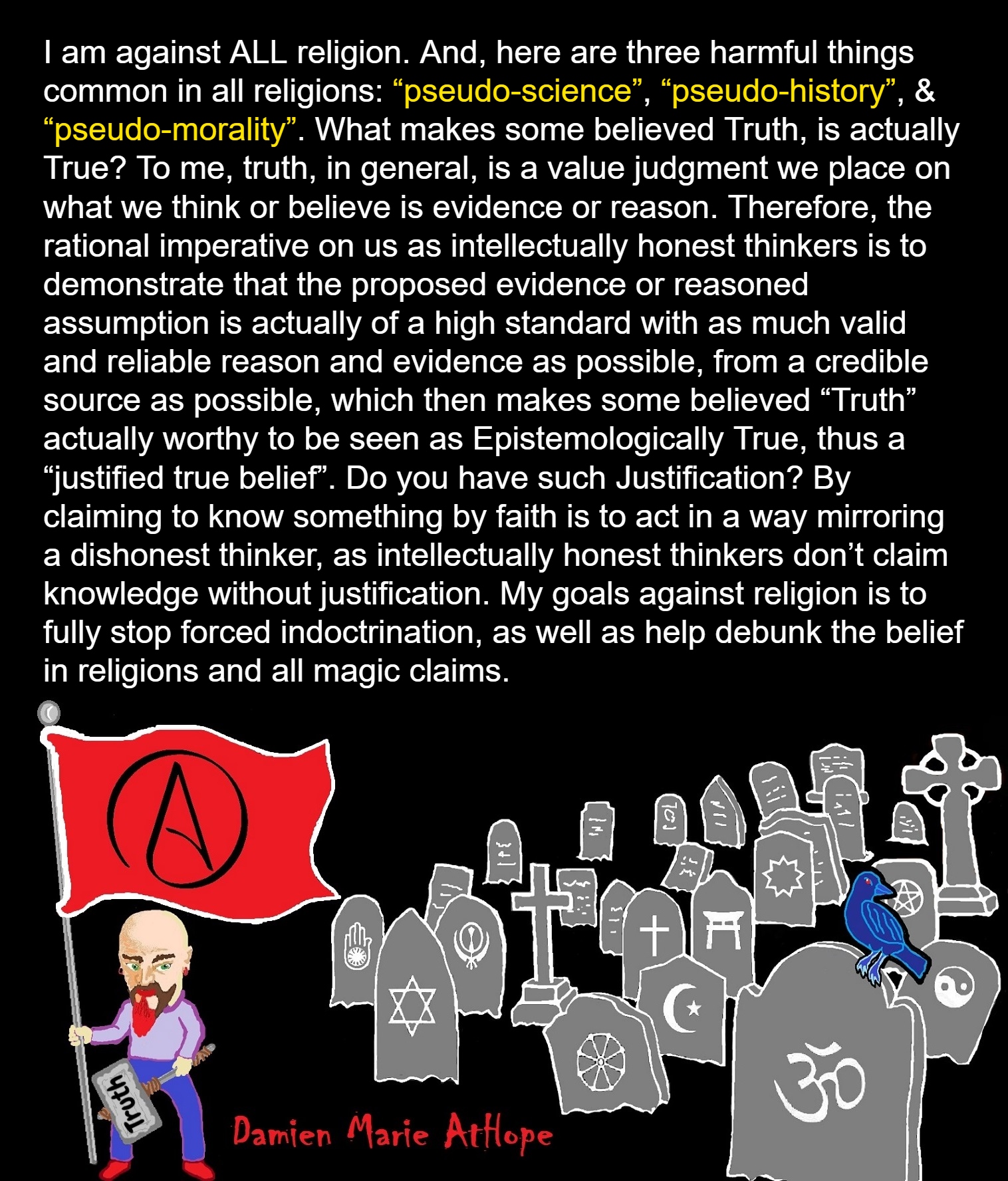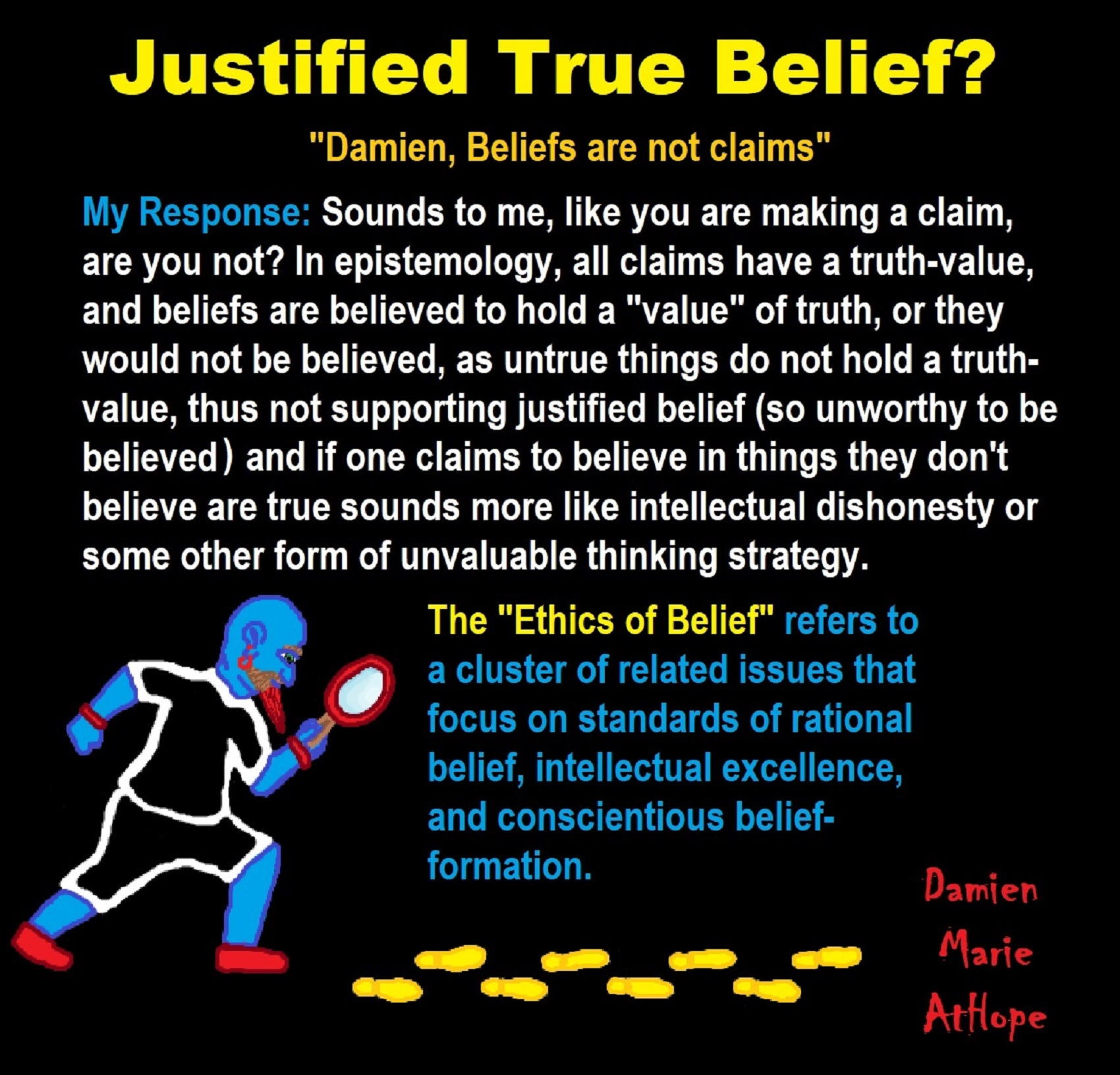
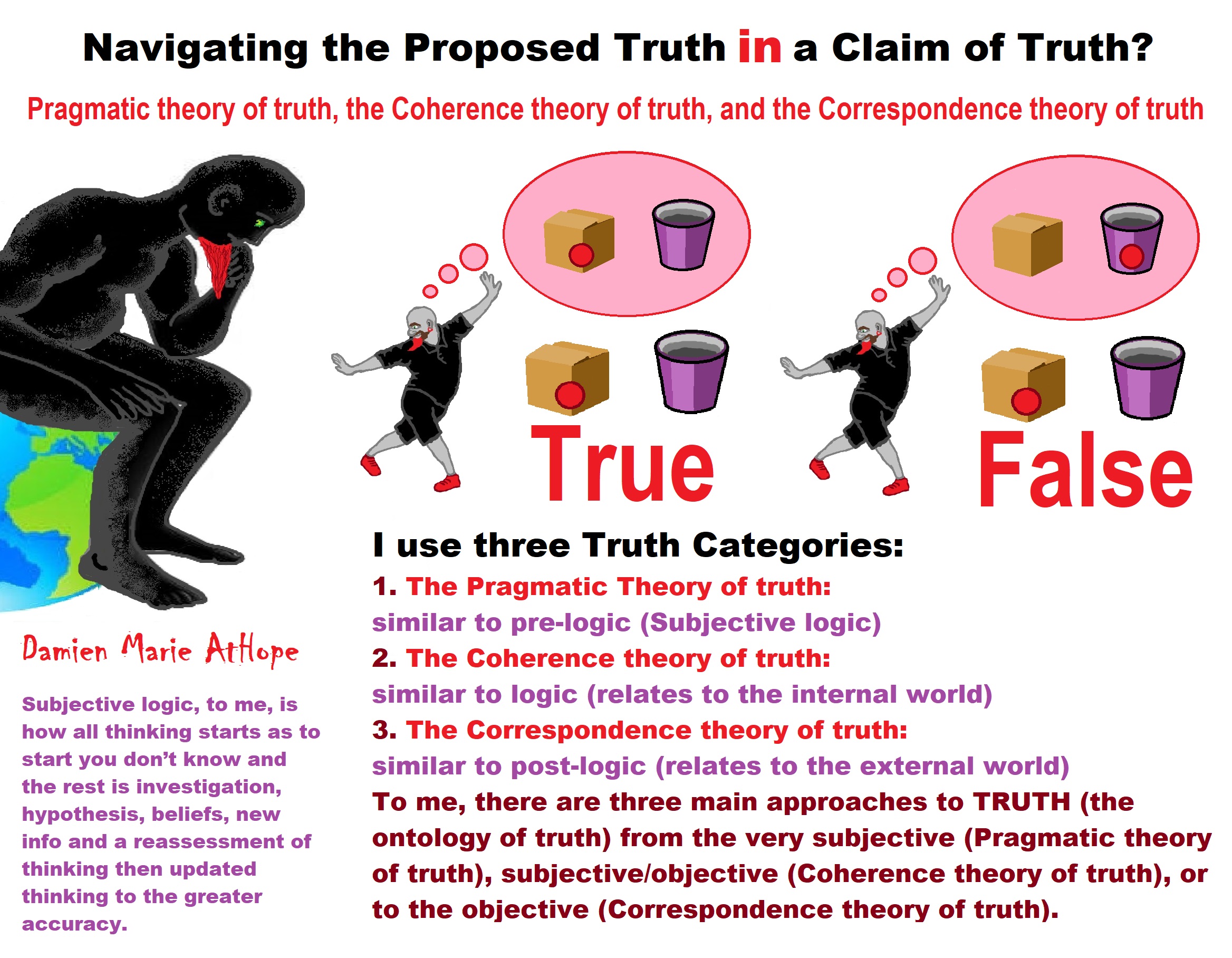
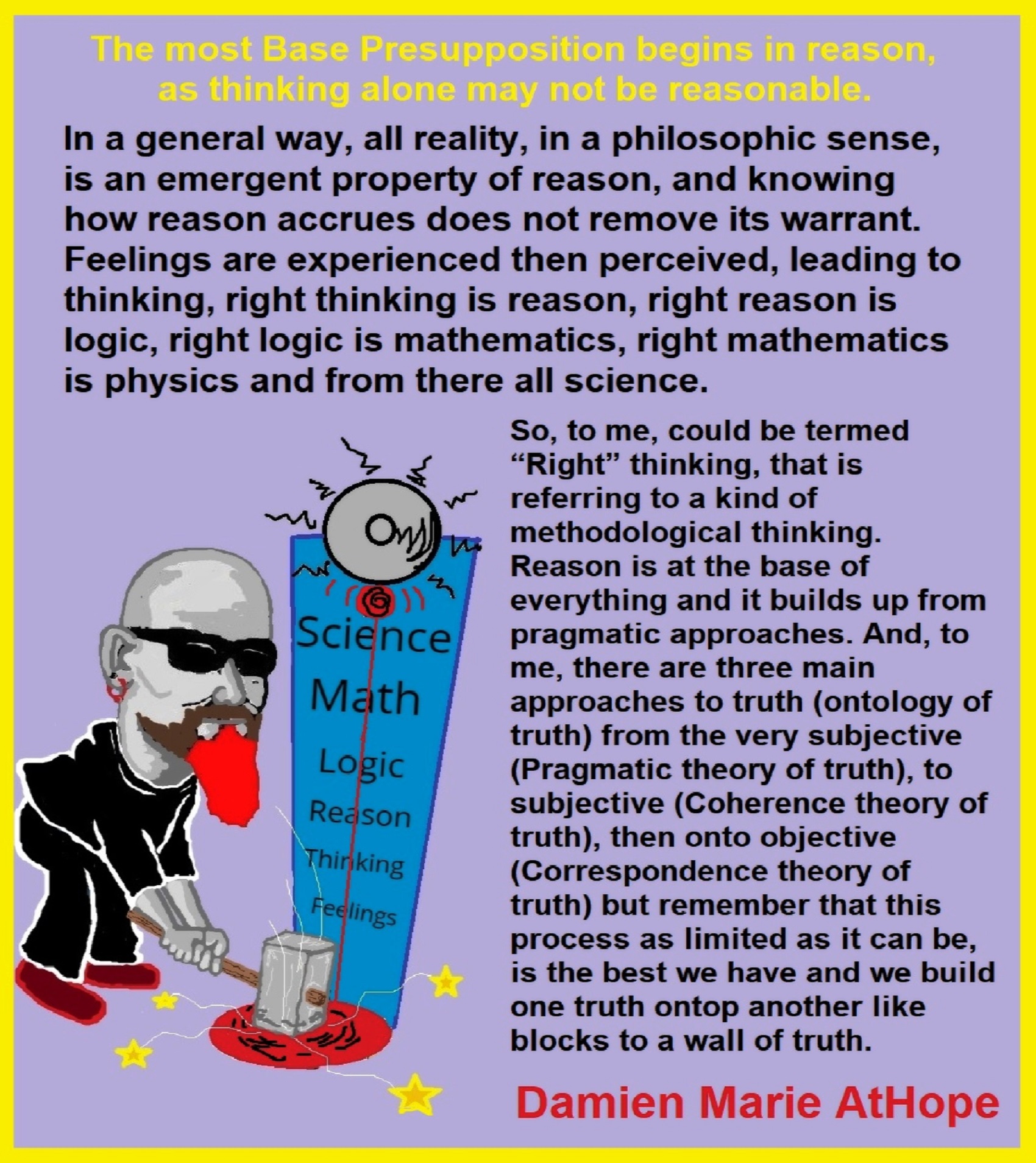
Truth Navigation: Techniques for Discussions or Debates
I do truth navigation, both inquiry questions as well as
strategic facts in a tag team of debate and motivational teaching.
Truth Navigation and the fallacy of Fideism “faith-ism”
Compare ideas not people, attack thinking and not people. In this way, we have a higher chance to promote change because it’s the thinking we can help change if we address the thinking and don’t attack them.
My eclectic set of tools for my style I call “Truth Navigation” (Techniques for Discussions or Debates) which involves:
*REMS: reason (rationalism), evidence (empiricism), and methodological “truth-seeking” skepticism (Methodic doubt) (the basic or general approach)
*The Hammer of Truth: ontology, epistemology, and axiology (methodological use of philosophy)
*Dialectical Rhetoric = truth persuasion: use of facts and reasoning (motivational teaching)
*Utilizing Dignity: strategic dignity attacks or dignity enrichments (only used if confusion happens or resistance is present)
Asking the right questions at the right time with the right info can also change minds, you can’t just use facts all on their own. Denial likes consistency, the pattern of thinking cannot vary from a fixed standard of thinking, or the risk of truth could slip in. Helping people alter skewed thinking is indeed a large task but most definitely a worthy endeavor.
Error Crushing Force of the Dialectic Questions and the Hammer of Truth
I don’t really follow the Socratic method, as I feel it is limited for me, it mainly is a dialectical only approach, seeking truth without persuasion. Like most dialectical approaches, It is a form of cooperative dialogue to stimulate critical thinking and to draw out ideas and underlying presumptions. But I add Rhetoric to my use of Dialectics, thus my “Dialectical Rhetoric.”
Hate the Dogmatic-Propaganda Not the People
Dogmatic-Propaganda Must not go Unchallenged
Religionists like to act as if it is they who are being persecuted when it is them forcing what and how they believe on others and asking stupid questions to atheists, such as, I do not understand why you cannot just let religion believers live and let live. I could say, I don’t understand why religious never has, nor ever will just live and let live. However, I already know why, they are Dogmatic-Propaganda that wishes self-replication and oppression of those who don’t fall in line and thus every ethical rational thinker must see this as the enemy to a civil humanity that it is, has been and will continue to be if left unchallenged.
Two Dogmatic-Propaganda Fallacies
Religionists and fideists promote Dogmatic-Propaganda whereas atheists and antireligionists mostly promote Disciplined-Rationality.
Dogmatic–Propaganda commonly is a common motivator of flawed or irrational thinking but with over seventy belief biases identified in people, this is hardly limited to just the religious or faith inclined.
Let me illustrate what I am saying, to me all theists are believing lies or irrationally in that aspect of their lives relating to god belief. So the fact of any other common intellectual indexers where there may be right reason in beliefs can not remove the flawed god belief corruption being committed. What I am saying is like this if you kill one person you are a killer. If you believe one god you are a follower of Dogmatic-Propaganda and can not completely be a follower of Disciplined-Rationality.
However, I am not proclaiming all atheists are always rational as irrationally is revolving door many people believe or otherwise seem to stumble through. It’s just that god belief does this with intentionally.
Disciplined-Rationality is motivated by principles of correct reasoning with emphasis on valid and reliable methods or theories leading to a range of rational standpoints or conclusions understanding that concepts and beliefs often have consequences thus hold an imperative for truth or at least as close to truth as can be acquired rejecting untruth. Disciplined-Rationality can be seen as an aid in understanding the fundamentals for knowledge, sound evidence, justified true belief and involves things like decision theory and the concern with identifying the value(s), reasonableness, verification, certainties, uncertainties and other relevant issues resulting in the most clear optimal decision/conclusion and/or belief/disbelief. Disciplined-Rationality attempts to understand the justification or lack thereof in propositions and beliefs concerning its self with various epistemic features of belief, truth, and/or knowledge, which include the ideas of justification, warrant, rationality, reliability, validity, and probability. ref , ref
Religion vs. Science
Don’t Confuse Beliefs
Science is a system where justified true beliefs are derived from objective methodologies such as the scientific method and religion is a system of unjustified beliefs based on subjective faith or revelation. We must not confuse beliefs, religion is beliefs built from myths devoid of corroborating evidence. Science uses corroborating evidence to establish what is true and that offers something worthy to believe. Modern Science is not a thing, it’s a group of different specialties aiming to test (generally with the scientific method) and try to figure out the world as it presents itself in reality, which is devoid of supernatural magic.
We must not confuse beliefs, religion is beliefs from myths devoid of corroborating evidence or reason. Whereas, science uses as well as demands corroborating evidence and reason to establish what is true and that offers something worthy to believe in. Thus, we have a belief without valid and reliable warrant or justification, so it’s an issue involving religion believers violating the ethics of belief. Do you believe in god? What is a god? When someone asks me if I believe in gods I think, are you asking me if magic exists? Well my answer as an ignostic atheist is, first prove the actuality of simple magic before you try to ask anyone about the possibility of some supreme magic, i.e. the claims of gods. So, let’s recap, likely no religion follower is honestly going to stop belief because of lack of evidence or reason, or they would have already done so. Just as no science follower is honestly going to start believing something if it has a lack of evidence or reason. Remember, we honest thinkers need to adhere to beliefs in an ethical way, like exhibit good belief etiquette: reasoned belief-acquisitions, good belief-maintenance, and honest belief relinquishment. I can’t stand when people try to say that atheism and religion use faith. We atheists, have archaeology that proves religion is a lie, so no faith is needed. Moreover, We atheists, have science which shows that every mystery has ever turned out to be nature and not magic. There is nothing that the only explanation is magic or supernatural anything, so for religion it has no evidence at all. All religion has is faith without any proof and do not try to say that atheism is anything like that. Promoting religion as real is mentally harmful to a flourishing humanity. To me, promoting religion as real is too often promote a toxic mental substance that can divide a person from who they are shaming them for being human. In addition, religion is a toxic mental substance that can divide a person from real history, real science or real morality to pseudohistory, pseudoscience and pseudomorality. Moreover, religion is a toxic mental substance that can divide a person from rational thought, critical thinking, or logic. Likewise, religion is a toxic mental substance that can divide a person from justice, universal ethics, equality, and liberty. Yes, religion is a toxic mental substance that can divide a person from loved ones, and religion is a toxic mental substance that can divide a person from humanity. Therefore, to me, promoting religion as real is too often promote a toxic mental substance that should be rejected as not only false but harmful as well even if you believe it has some redeeming quality. To me, promoting religion as real is mentally harmful to a flourishing humanity. Religion may have once seemed great when all you had or needed was to believe. Science now seems great when we have facts and need to actually know. I proudly reject all gods and religions. It should be understood, that religion as well as its love of gods, must be seen for what they are, which beyond their pomp and circumstance are exposed as little more than indoctrinated cultural products, the conspiracy theories of reality no one should believe today in our world of science. Simply, religion and its gods are the leftovers of an ignorant age trying to explain and control a fearful world which seems now favored by the uninformed, misinformed, emotional/physical/social support seekers and conmen. To me, a rational mind values humanity and rejects religion and gods as real until valid and reliable reason and evidence that passes scientific consensus that what is being offered is as it is claimed, so no belief without proof. A truly rational mind sees the need for humanity, as they too live in the world and see themselves as they actually are an alone body in the world seeking comfort and safety. Thus, see the value of everyone around them as they too are the same and therefore rationally as well a humanistically we should work for this humanity we are part of and can either dwell in or help its flourishing as we are all in the hands of each other. You are Free to think as you like but REALITY is unchanged. While you personally may react, or think differently about our shared reality (the natural world devoid of magic anything), We can play with how we use it but there is still only one communal reality (a natural non-supernatural one), which we all share like it or not and you can’t justifiably claim there is a different reality. This is valid as the only one of warrant is the non-mystical natural world around us all, existing in or caused by nature; not made or caused by superstitions like gods or other monsters to many sill fear irrationally.
Do Beliefs Need justification?
Yes, it all requires a justification and if you think otherwise you should explain why but then you are still trying to employ a justification to challenge justification. So, I still say yes it all needs a justification and I know everything is reducible to feeling the substation of existence. I feel my body and thus I can start my justificationism standard right there and then build all logic inferences from that justified point and I don’t know a more core presupposition to start from. A presupposition is a core thinking stream that like how a tree of beliefs always has a set of assumed sets of presuppositions or a presupposition is relatively a thing/thinking assumed beforehand at the beginning of a line of thinking point, belief projection, argument or course of action. And that as well as everything needs justification to be concluded as reasonable. Sure, you can believe all kinds of things with no justification at all but we can’t claim them as true, nor wish others to actually agree unless something is somehow and or in some way justified. When is something true that has no justification? If you still think so then offer an example, you know a justification. Sure, there can be many things that may be true but actually receiving rational agreement that they are intact true needs justification. Remembering my past, it all goes back to such troubles, which were so dark as was my mind, it was like being dead while alive. I had made my life unclean with excessive or even exclusive concern, for myself, my own advantage, and relatively my own pleasure regardless of the welfare of others or with little concern for them. Limited in caring I looked only for me, me, me getting what I could take from life not what I could give and was almost drowning in selfishness and pain. Trying to have fun no matter the cost. I was left feeling worthless. I needed something for my insides felt empty. I was like a screen smeared with darkness of selfness. My hearts tongueless words sang of my despair. My dark mind felt lost in a crowd. I needed to do something. It is as if my log lost empathy start to feel a call. Yes, I started to see past the mountain of me that strong and selfish tree. Something is changing. It’s as if my inner being has a mind of its own or it cries out for change. Bright life seems at hand by caring, to feel the connection not just with others but indeed a new and welcoming empathetic new me. I now seek that sweet day of caring connection and stop this night only selfishness bent on care of only me. My frozen shell shatters. It is hard to trust, but I must and seek others to help. I cried out, and listened to my need for change for the first time! I want to be more than my dark mind and self-limited life. I want to be my bright emotional wellbeing! Then joy spring forth in my every fiber mind and inner being. It’s as if I am on fire. Hope touch like a flame is was a soft breath that sets me free. I feel it, my bright inner thinking of love and care I now live in me adding to the freedom in the world. I may still have at times have a dark mind but have now created a bright life full of concern for the welfare of myself and others. I wish you to a bright life especially if you to suffer with a dark mind. However, when I was young I raged at the world, for abuse I received from my religious parents. Then I developed some, so I held my parents accountable, raging at them and the world; as so much was out there, like them. Then I fully developed and became an atheist, thus I started to see my parents were two different versions of christofascism (christian and fascism), as well as I saw that relatively all religions in some way are part of religiofascism (religion and fascism) especially how they often force hereditary religion of children by cursive force or oppression and I became an antireligionist atheist raging against religion as well as the lies of gods.
Religion and Science are Completely Different Epistemologies
The Earth is approximately 4.6 billion years old, an estimate is that a terrestrial biosphere emerged as early as 4.1 billion years ago. Ref The earliest evidences for life on Earth is 3.7 billion years old from Greenland and 3.48 billion years old from Australia. Ref The earliest evidences for sexual reproduction first appears 1200 million years ago and may have increased the rate of evolution and kick started or probably contributed to the evolution of sexual dimorphism (two sexes), where organisms within a species adopted different strategies of parental investment and what would later involve a reliance on caregiver compassion. Most plants unlike most animals are hermaphroditic (both male and female sexes) but approximately 6% of plants have separate males and females or have what amounts to serial sexual dimorphism. Most animals unlike plants are not hermaphroditic but approximately 5% are as well as some are sequential hermaphrodites in which the individual is born as one sex, but can later change into the opposite sex. Ref Ref Ref
Forget Survival of the Fittest: It Is Kindness That Counts
Moreover, we may never completely know when and why caregiver compassion in general or familial compassion specifically. However, the fossil record can, in principle, provide a glimpse and what we see is altruism and even levels of compassion are seen in a variety of species and Kin Selection (genetic), Familial (upbringing) or Familiars (chance) Compassion are the primary evolutionary mechanism. Ref The fossil record shows the arthropod “Kunmingella douvillei” 515 million years ago, arthropod “Waptia fieldensis” 508 million years ago, and arthropod “Ostracods” 450 million years ago to exhibit changes that played a key role in the early evolution of parental care. Ref 1.9 million years ago Homo habilis, the first of our genus Homo who appeared, with modest expansion of a language part of the brain and 1.8 million years ago Homo erectus appeared and had a larger expansion of brain beginning to be regulated as an emotion integrated with rational thought and seem to demonstrate forms of compassion such as caring of sick which represents an extensive compassionate investment. By 500,000 years ago Homo heidelbergensis developed language skills and intelligence and what seems to have been upward march in the commitments to the welfare of others. And evidence from 120,000 years ago demonstrates modern humans where involved in compassion which was extended to strangers, animals, objects and abstract concepts. Thus we cannot think of survival of the fittest without realizing that the aspects of altruism, compassion, empathy, and kindness are part of what assists in that survival. Ref Ref
In general, all social animals (which includes humans and their evolutionary ancestors) have had to modify or restrain their behaviors for group living which involves iinteractinghighly with other animals, usually of their own species. Social animals are cooperative animals adding to their evolutionary fitness in this solidarity and can roughly be said to exhibit one of more of these behaviors: cooperative sustenance, cooperative upbringing, cooperative generational living, cooperative defense, and cooperative learning. Ref
Kindness is in our genes, how desire to do good deeds is hard-wired into us by evolution
The Evolutionary Biology of Altruism, Compassion, cooperation, and community are key to our survival
The Evolution of Empathy by Frans de Waal We tend to think of empathy as a uniquely human trait. But it’s something apes and other animals demonstrate as well, says primatologist Frans de Waal. He shows how our evolutionary history suggests a deep-rooted propensity for feeling the emotions of others. Ref
Compassion: An Evolutionary Analysis: What is compassion? And how did it evolve? In this review, we integrate three evolutionary arguments that converge on the hypothesis that compassion evolved as a distinct affective experience whose primary function is to facilitate cooperation and protection of the weak and those who suffer. Our empirical review reveals compassion to have distinct appraisal processes attuned to undeserved suffering, distinct signaling behavior related to caregiving patterns of touch, posture, and vocalization, and a phenomenological experience and physiological response that orients the individual to social approach. This response profile of compassion differs from those of distress, sadness, and love, suggesting that compassion is indeed a distinct emotion. We conclude by considering how compassion shapes moral judgment and action, how it varies across different cultures, and how it may engage specific patterns of neural activation, as well as emerging directions of research. Ref Human inclinations are not primarily selfish: kindness and altruism have been evolutionarily valued in mates, and even the youngest children often try to be helpful. Ref
The Homeless Scientist Who Tried to Prove Selflessness Doesn’t Exist.
Critical Inquiry vs Criticizing
Thinking About Our Belief Motivation
Critical Thinking, What Does it Mean to Be Open to Learn?
Belief in god(s) May Involve Suppressing Analytical and Critical thinking
Critical or Analytical Thinking and Suspension of Judgment, Disbelief or Belief
Ethical Thinking or Moral Reasoning Should be Rational AND Emotional
Rhetoric & Stereotypes: Rethinking How We Think.
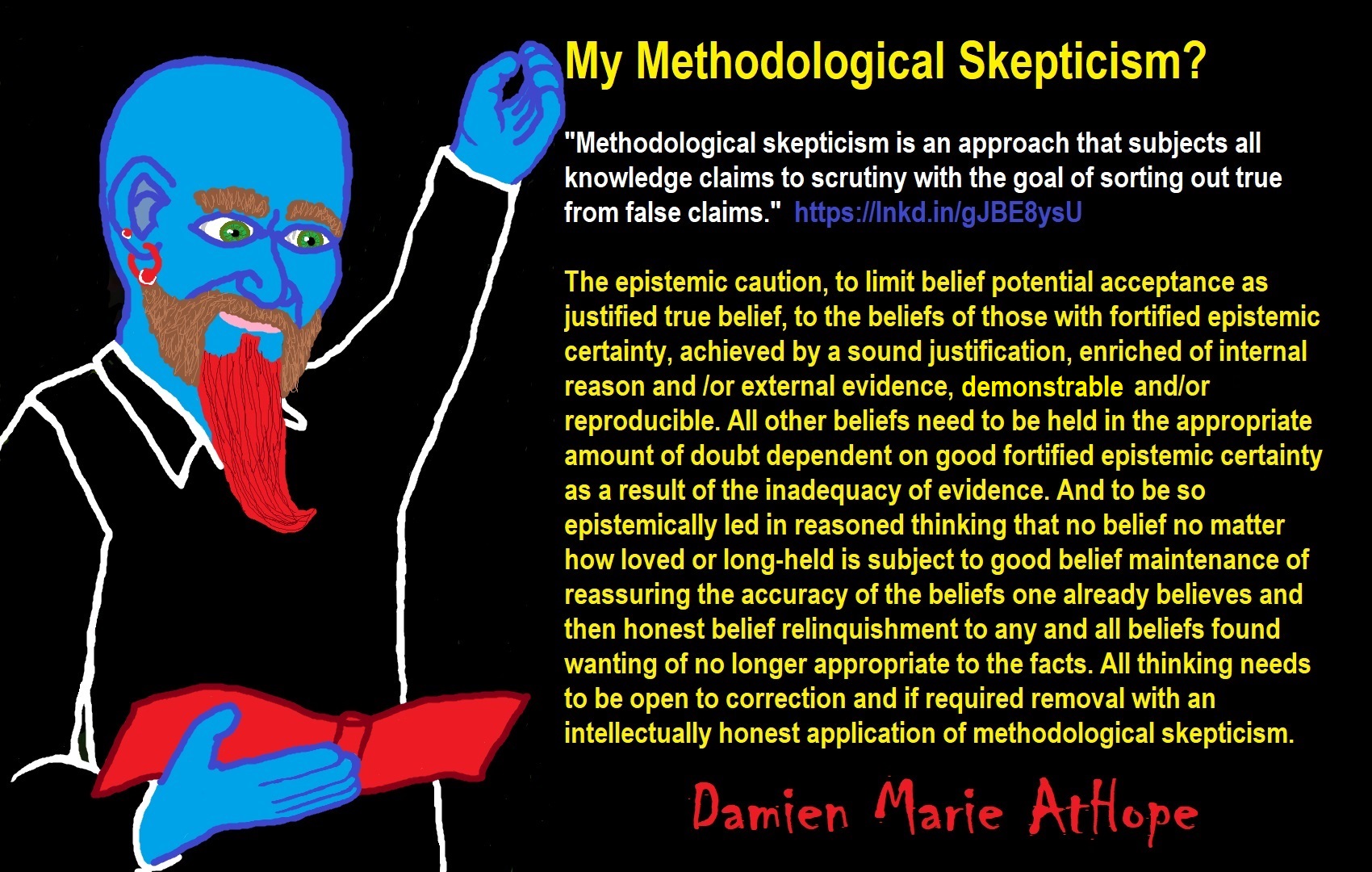
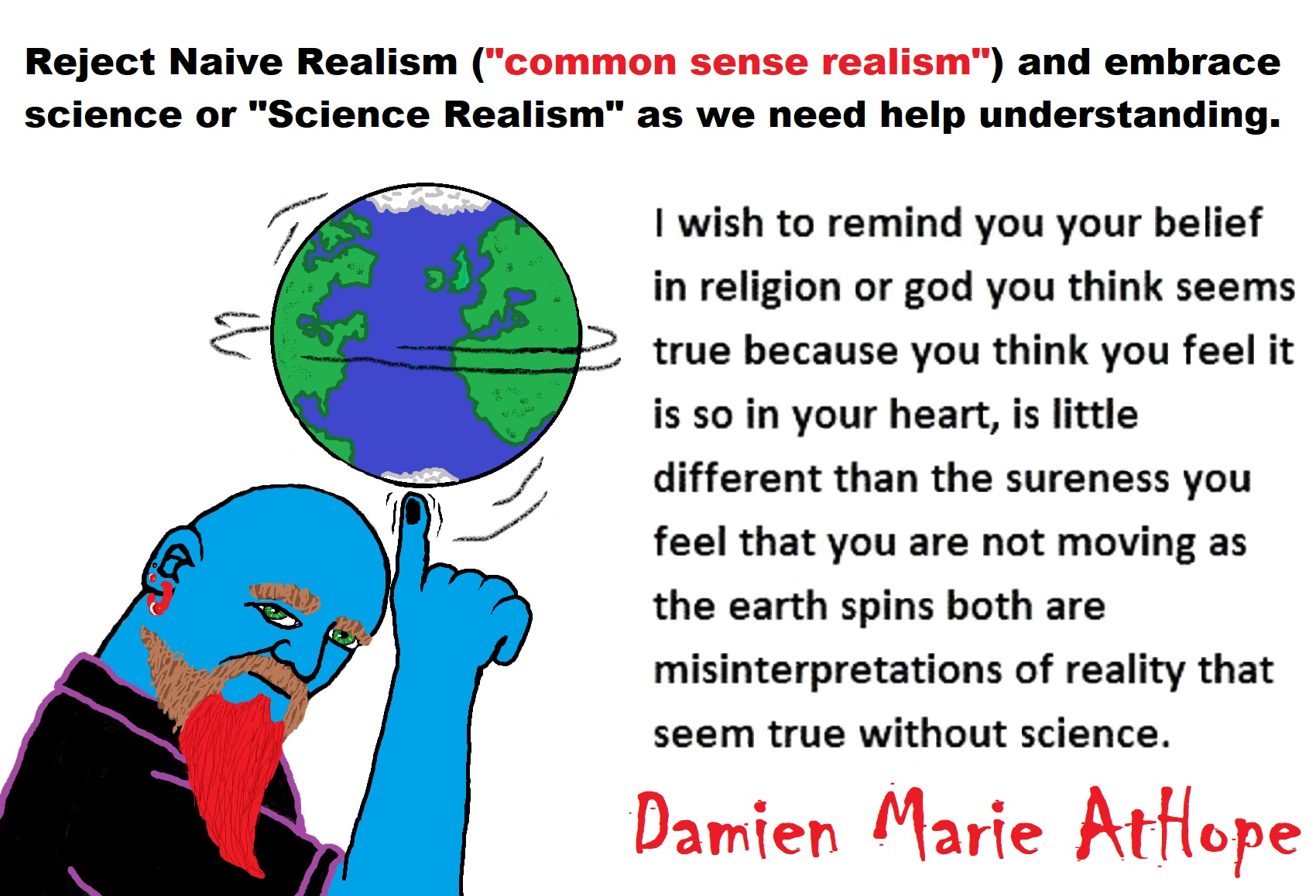
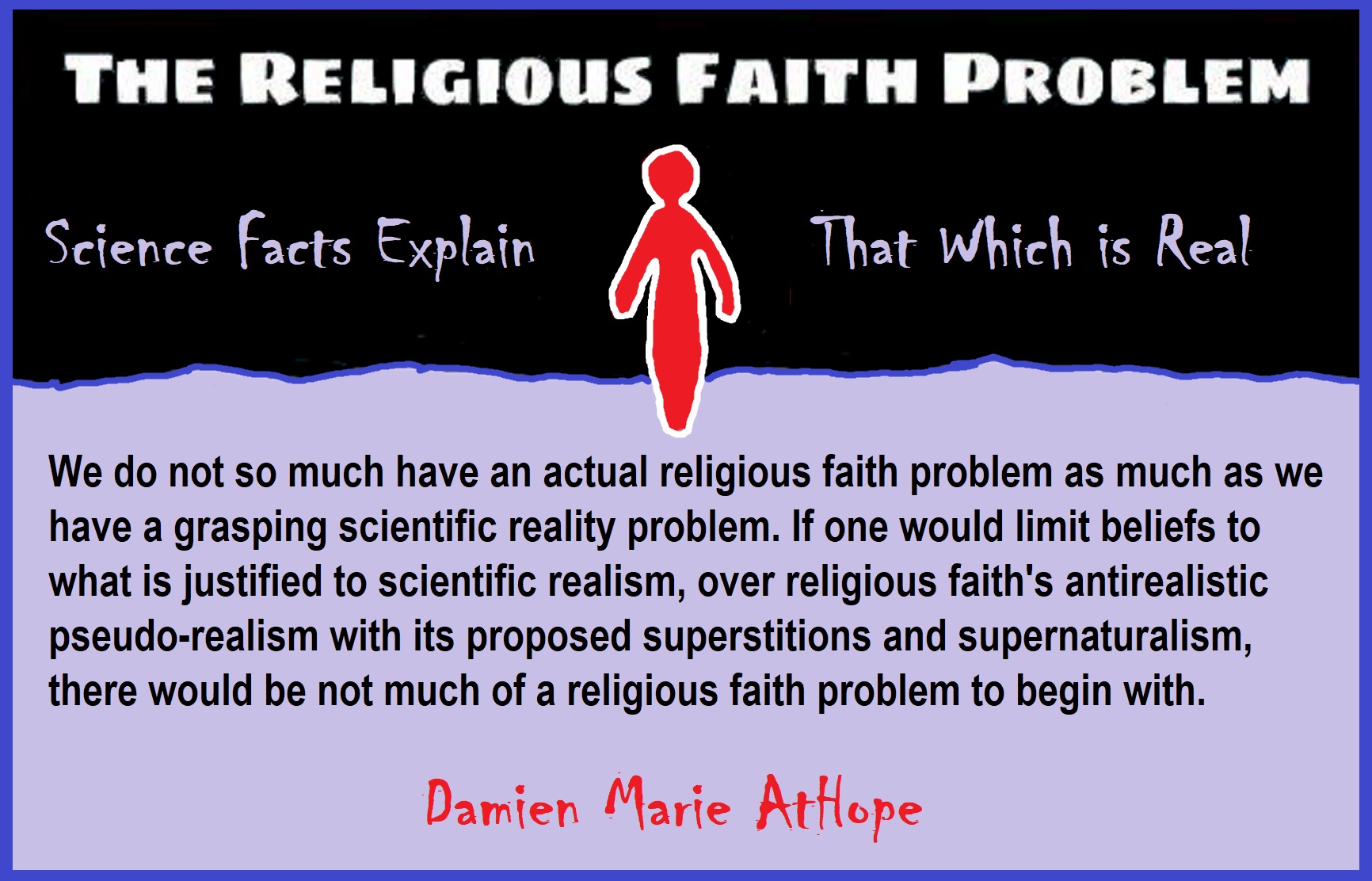
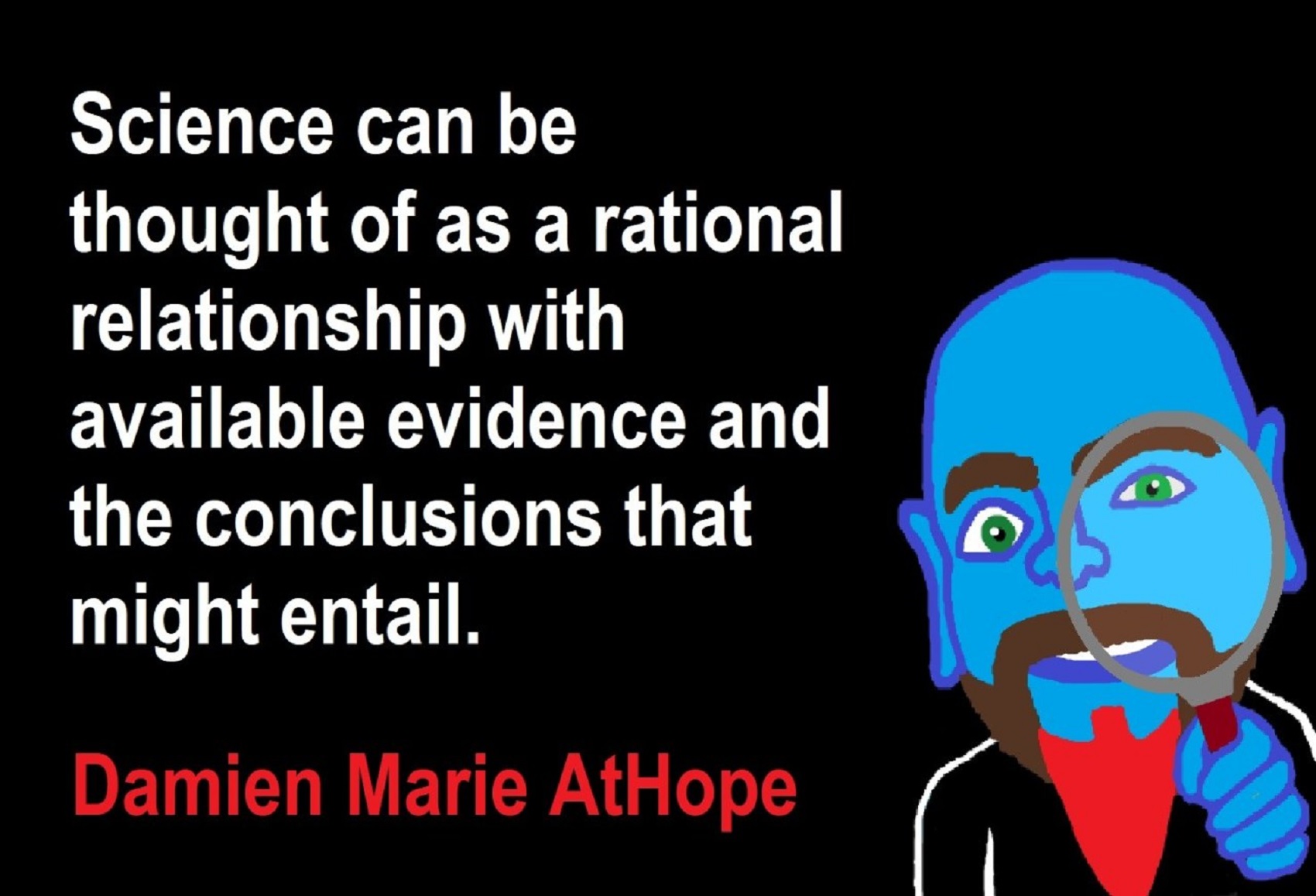
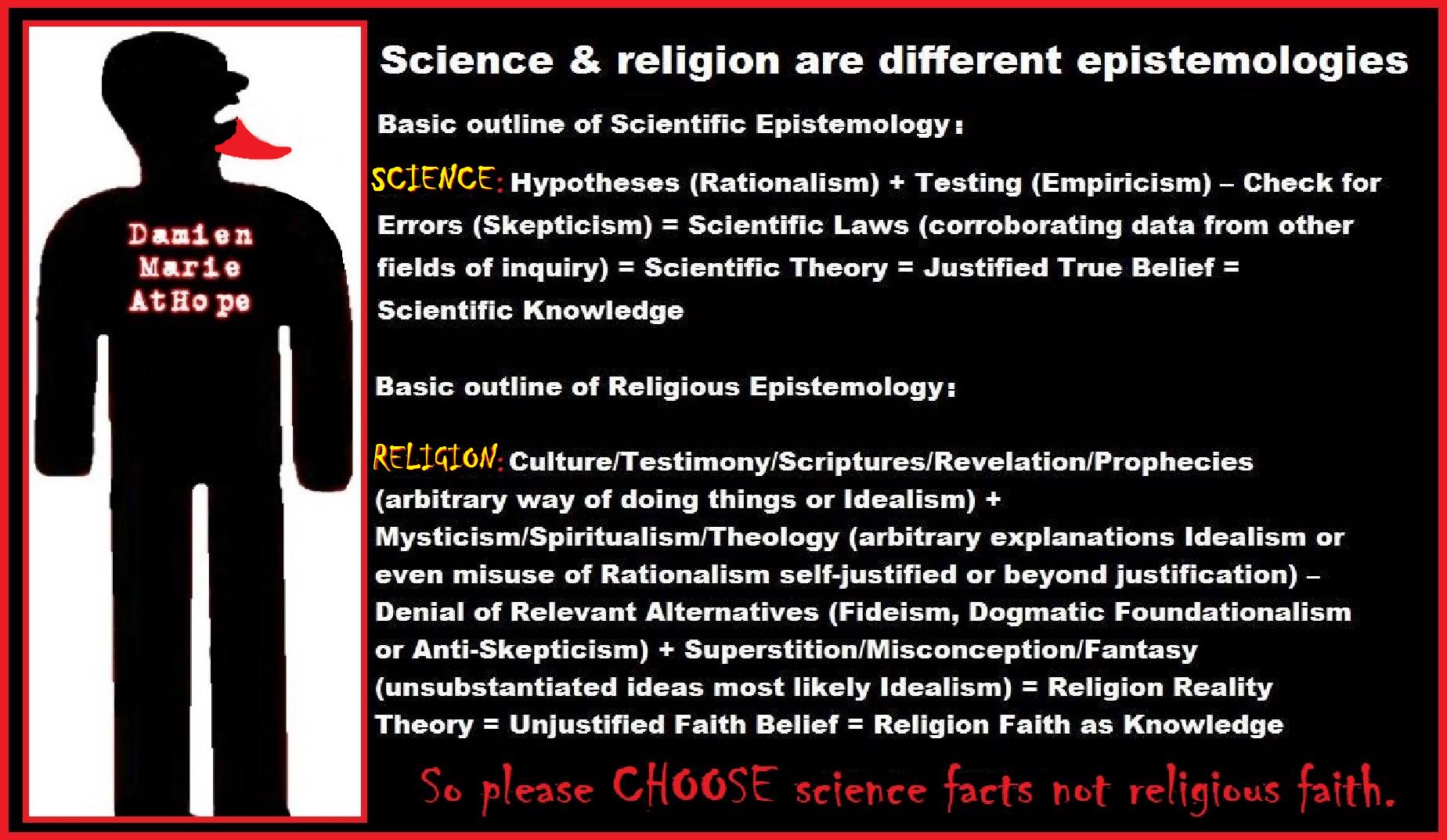
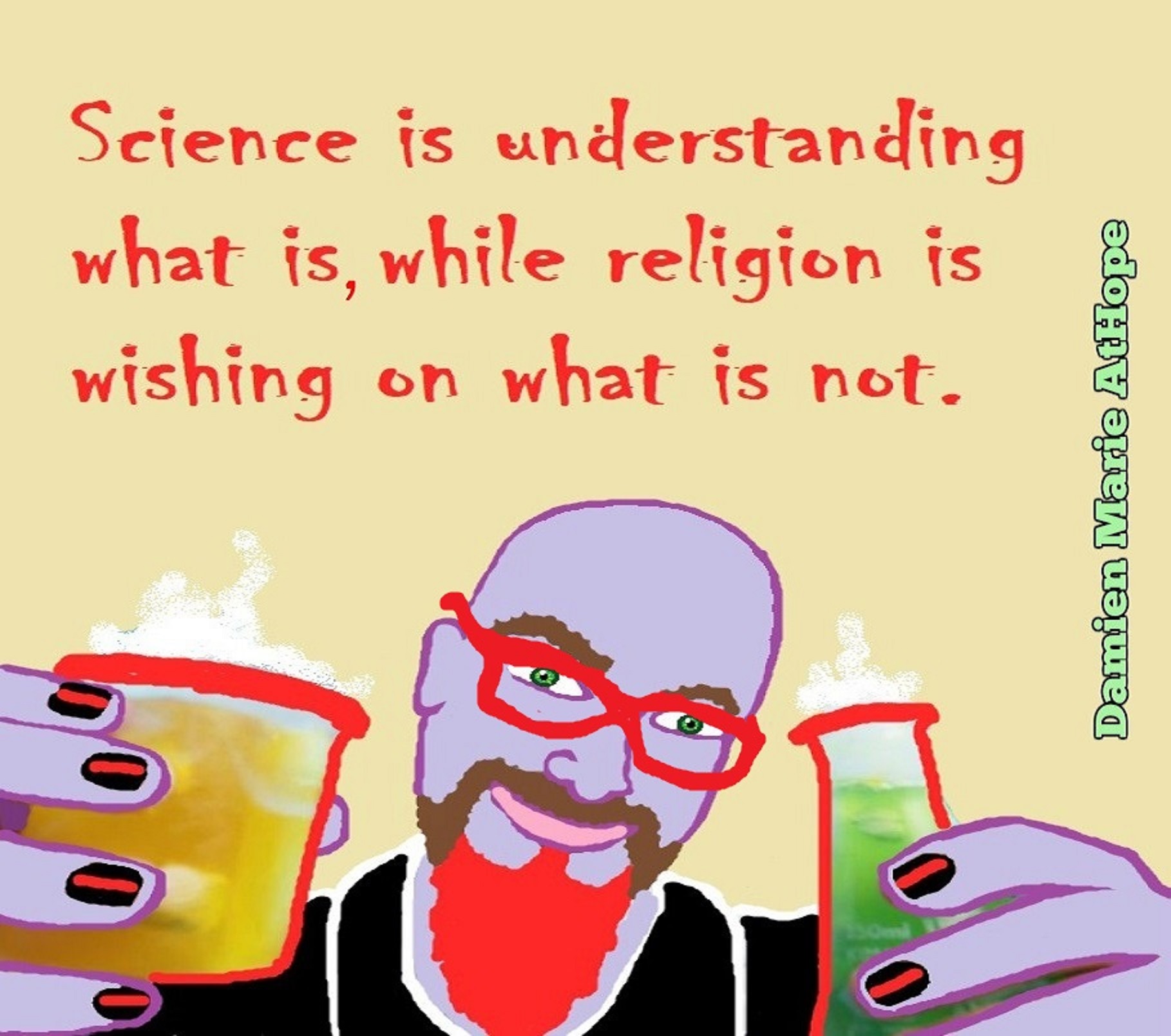
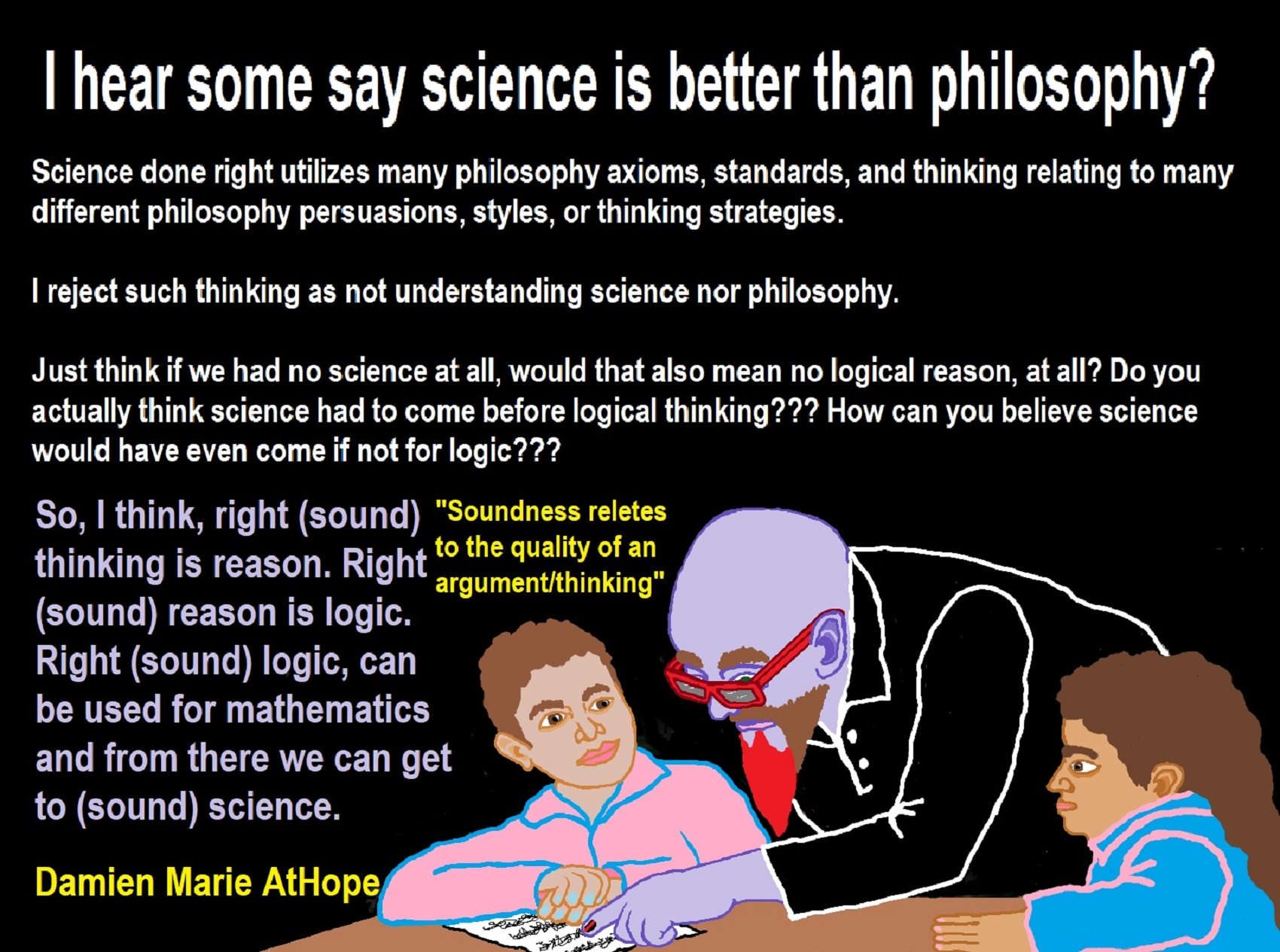
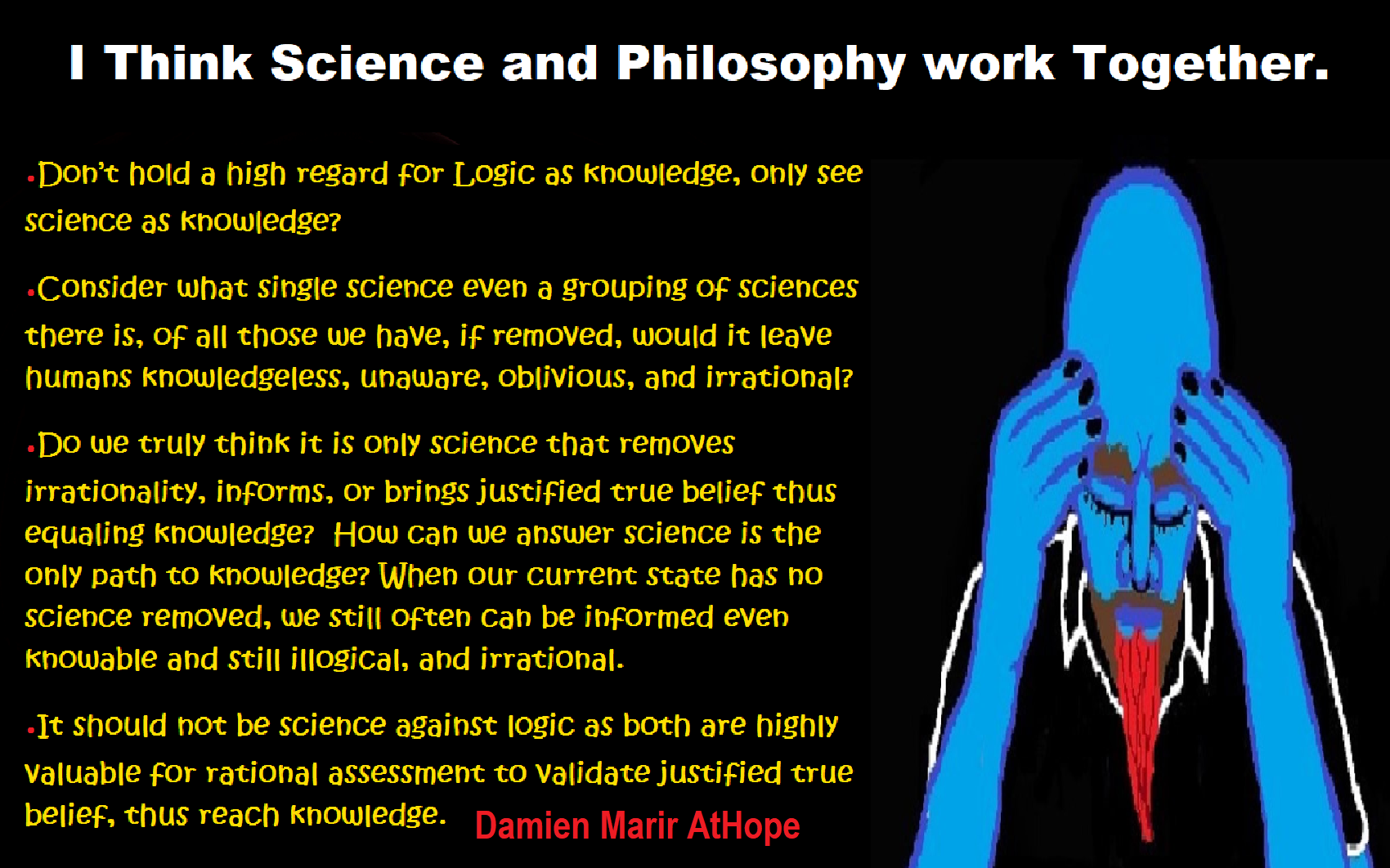
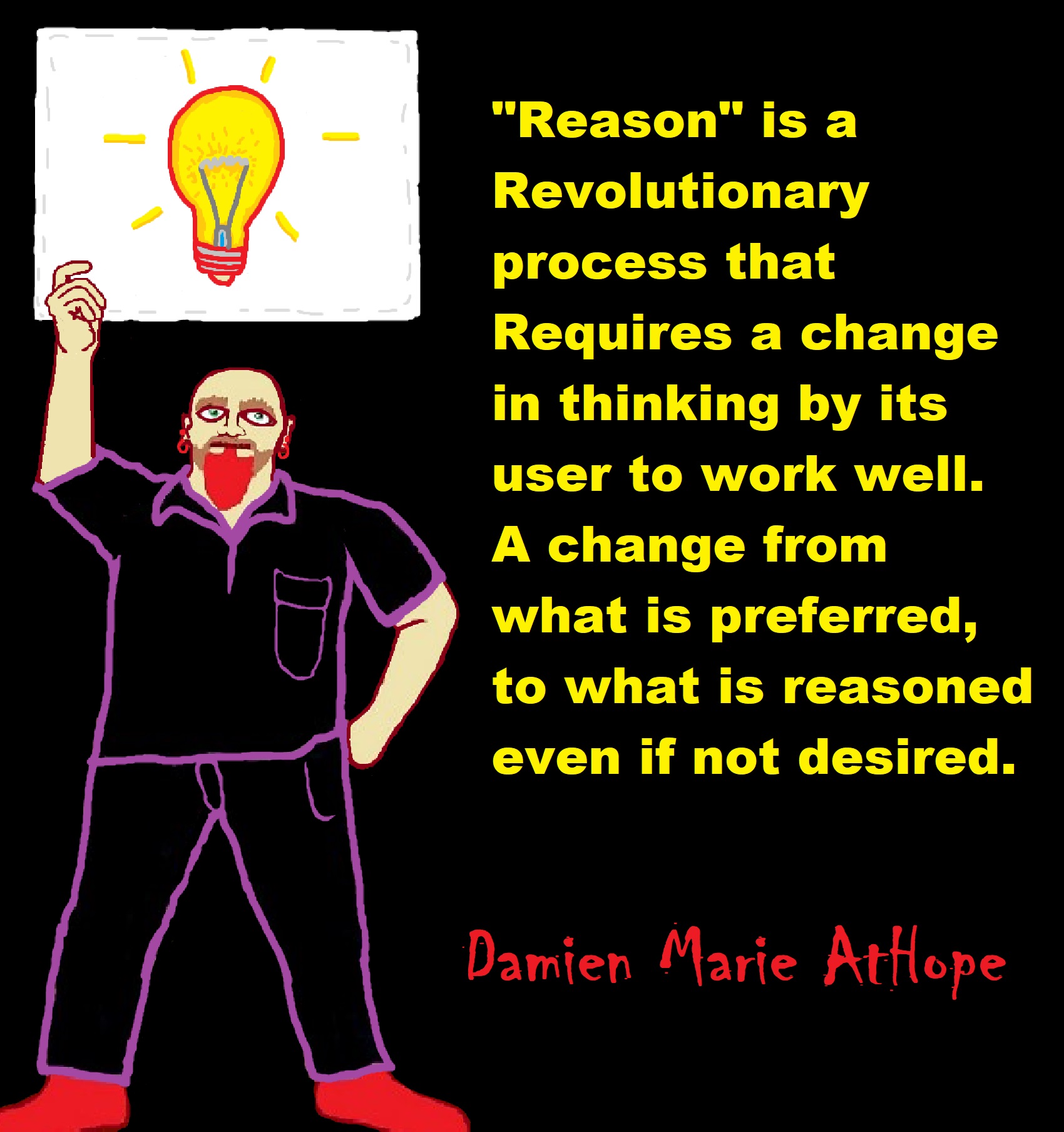
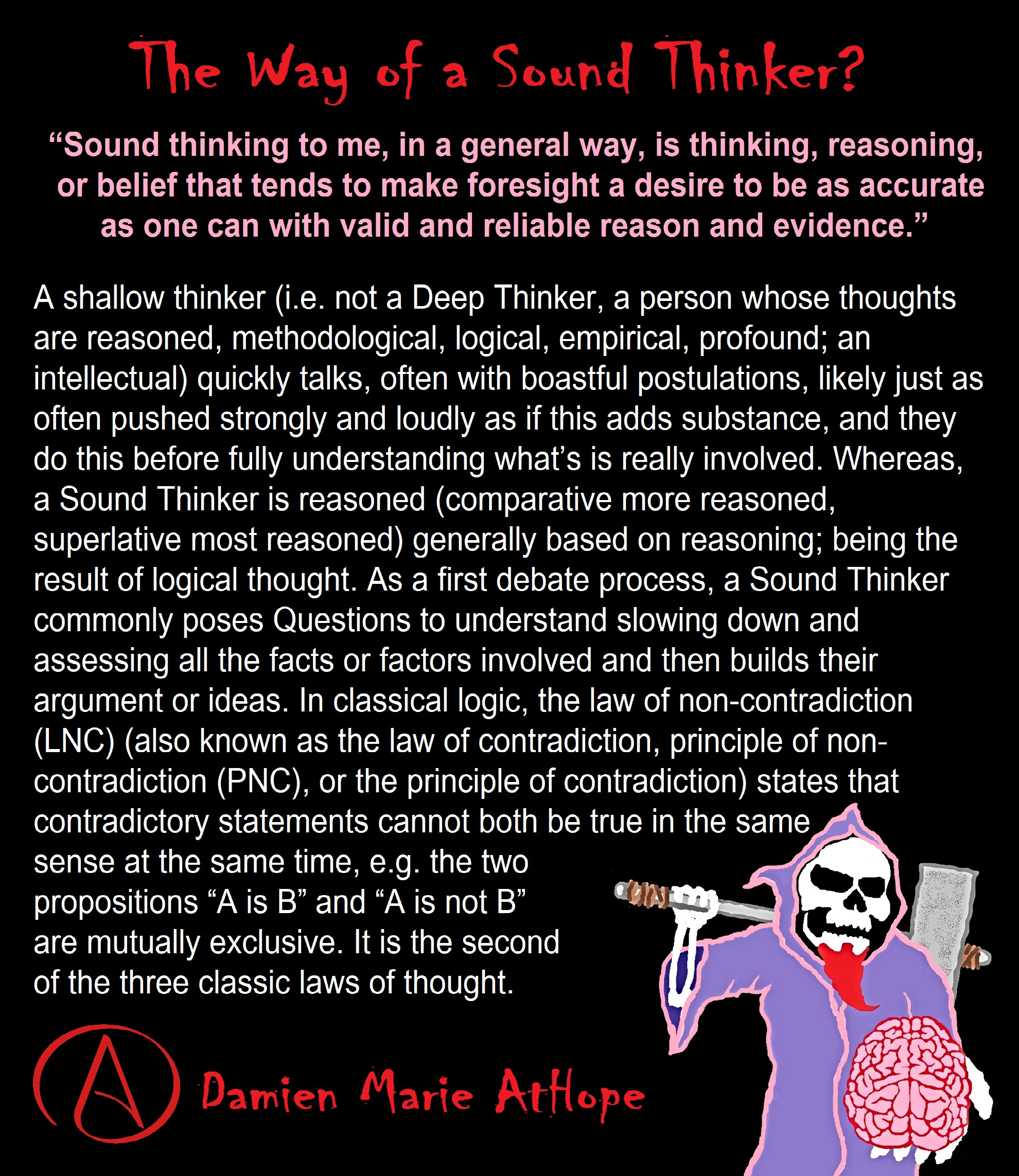
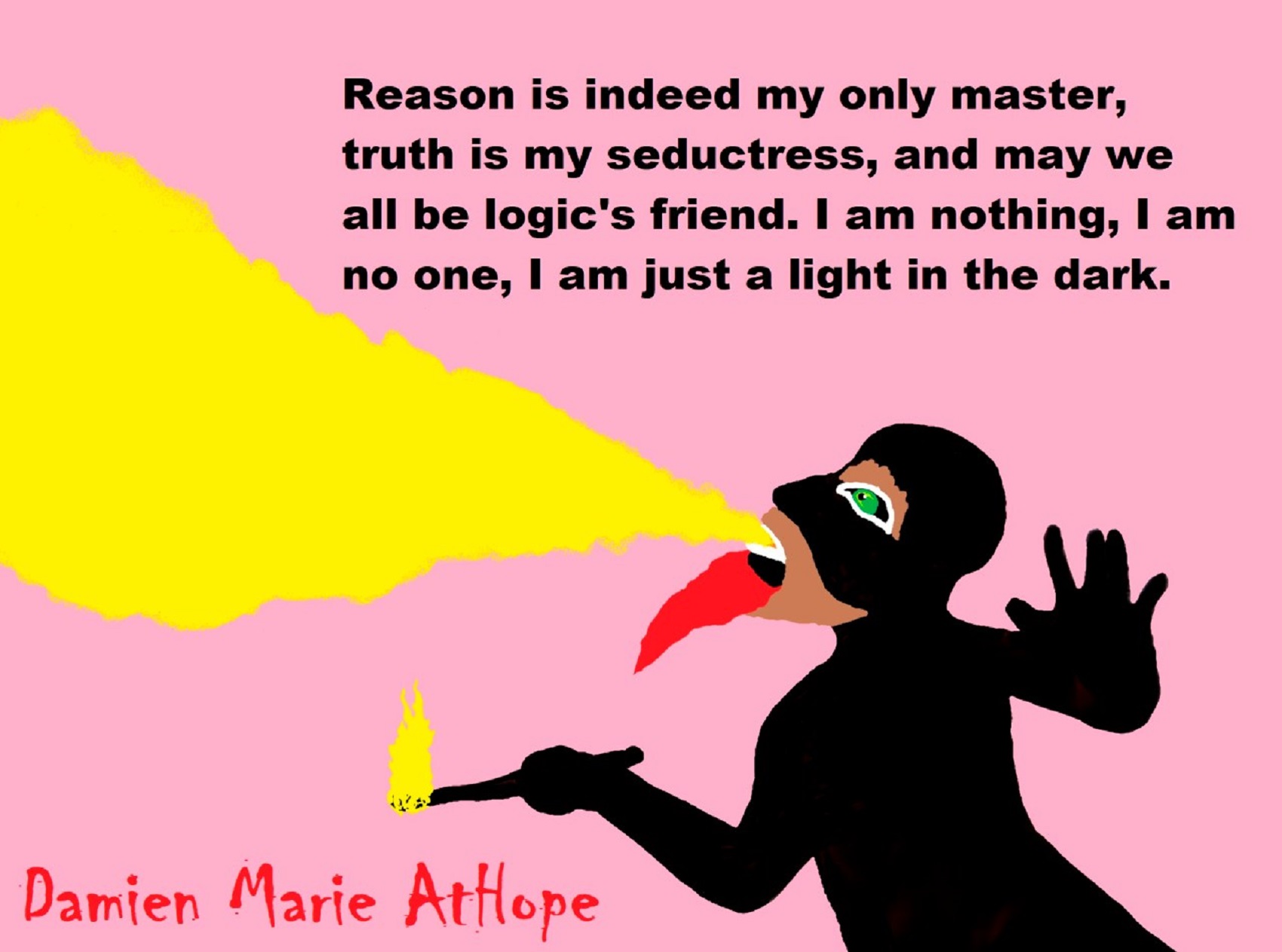
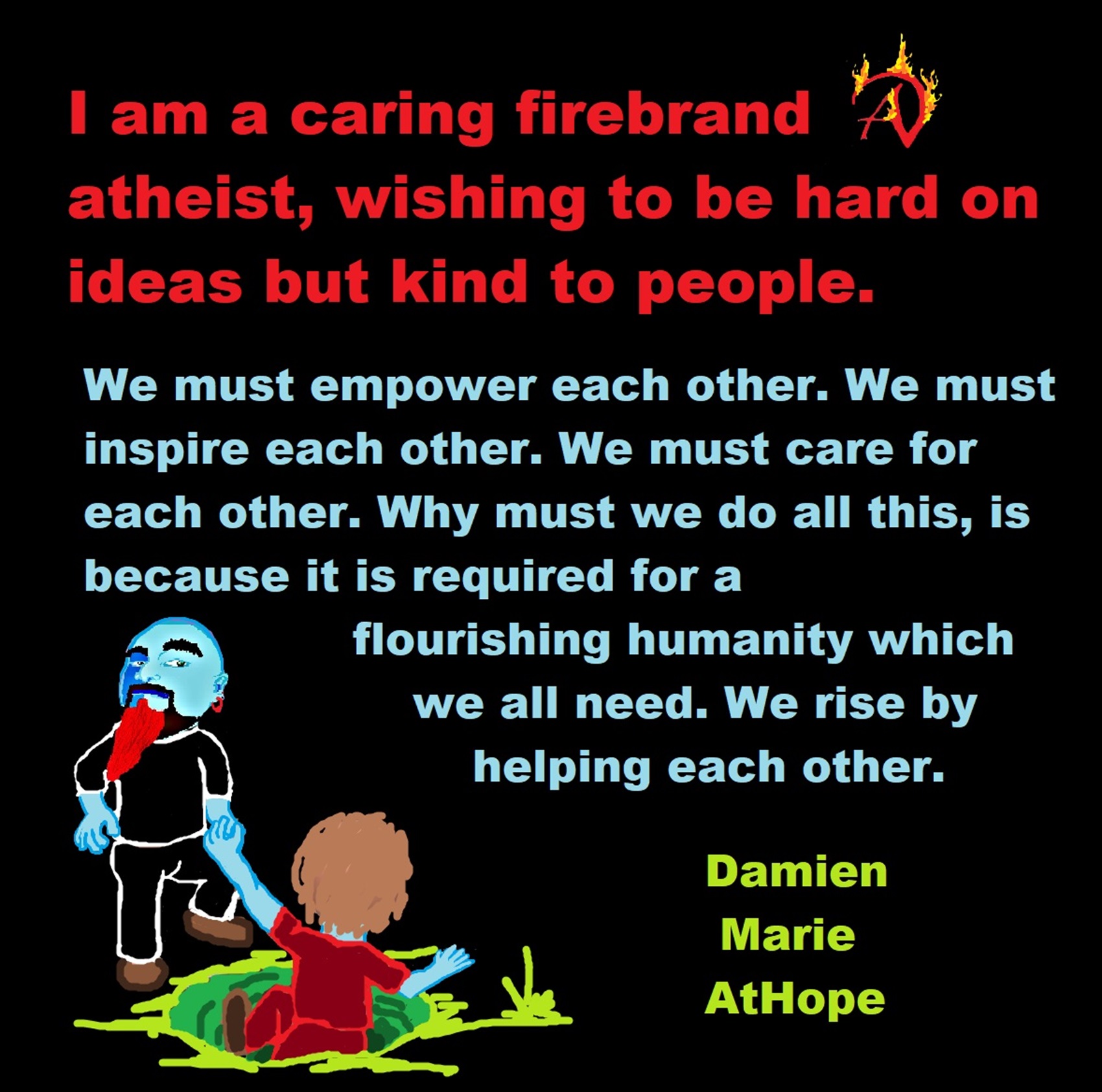


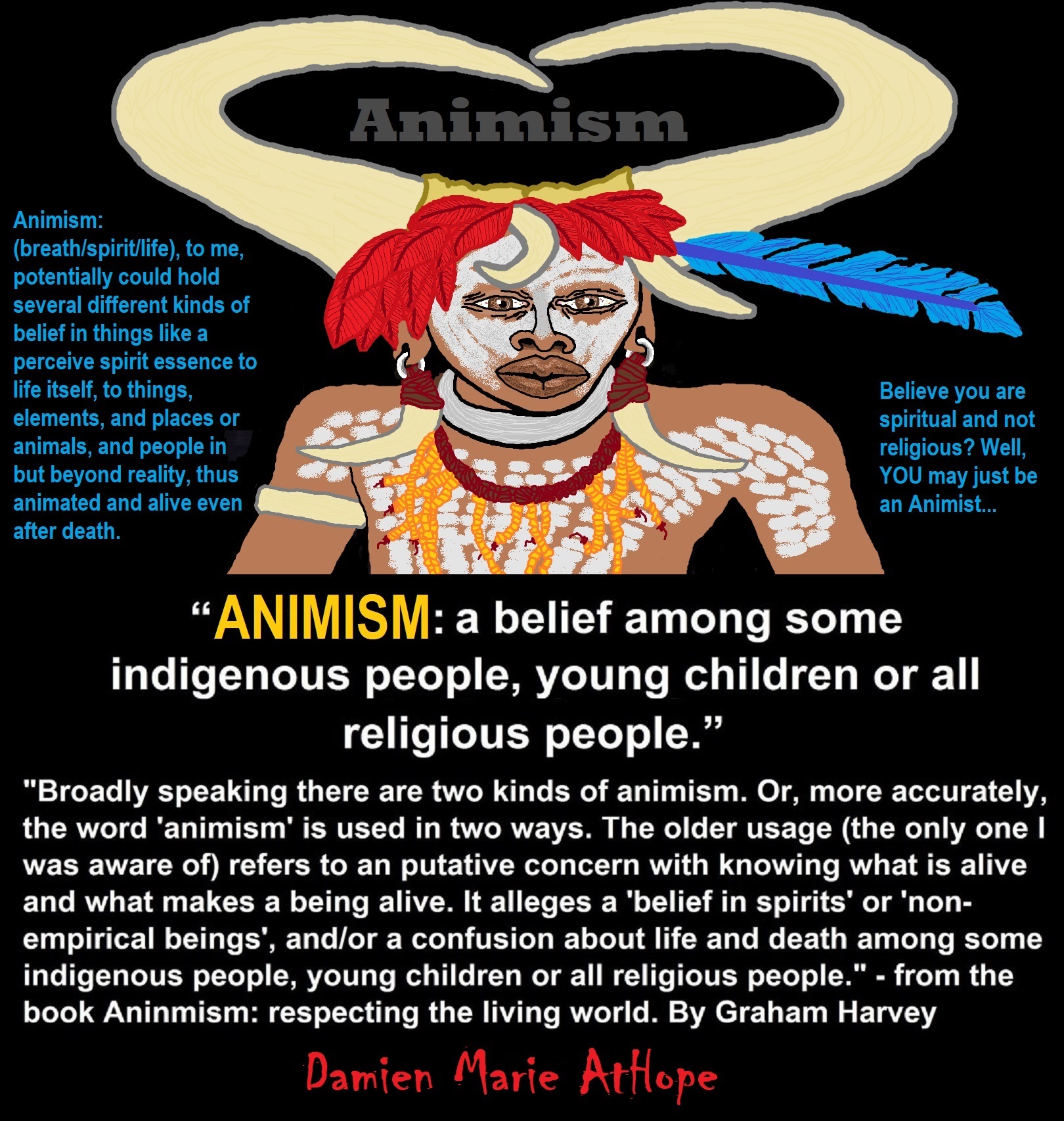













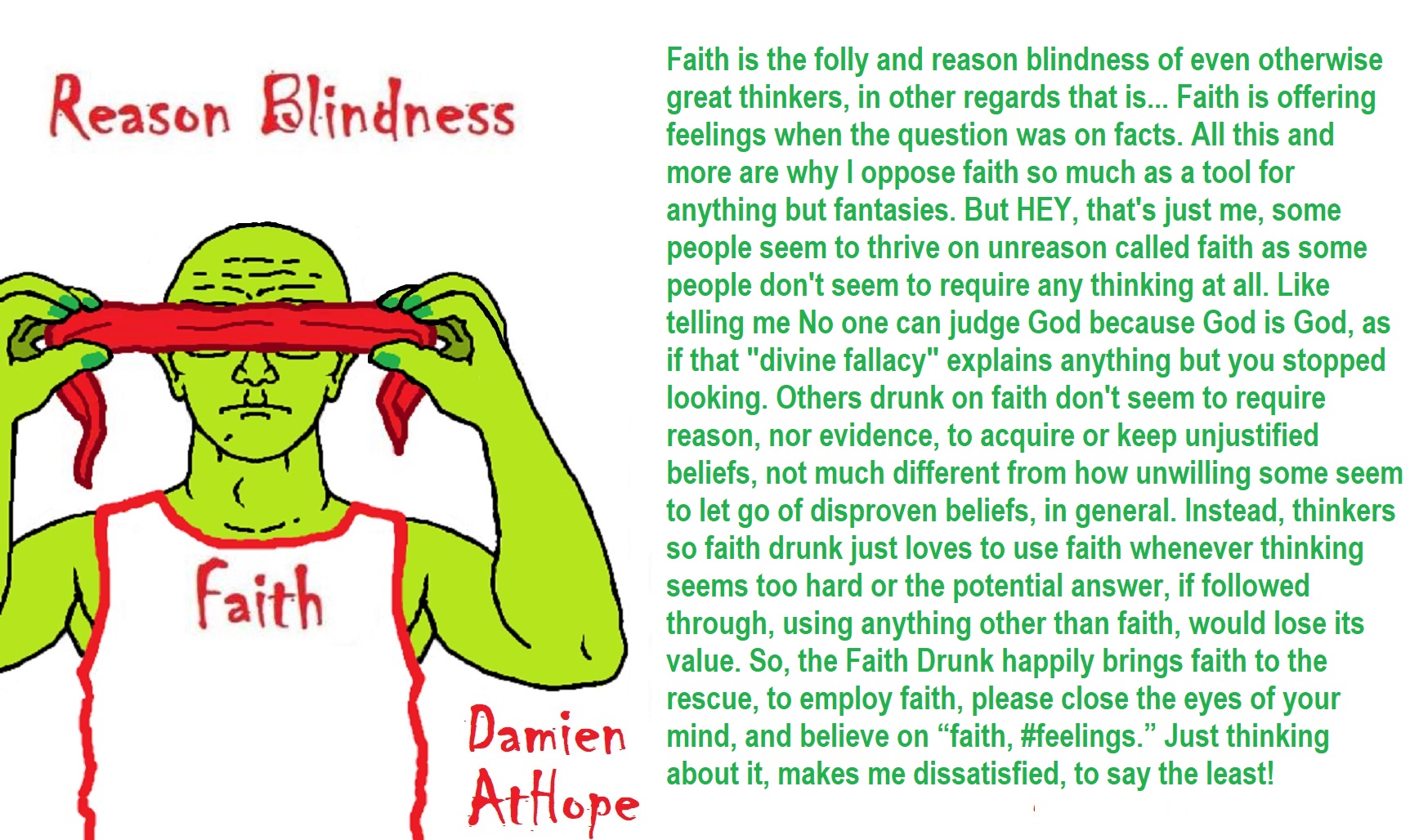
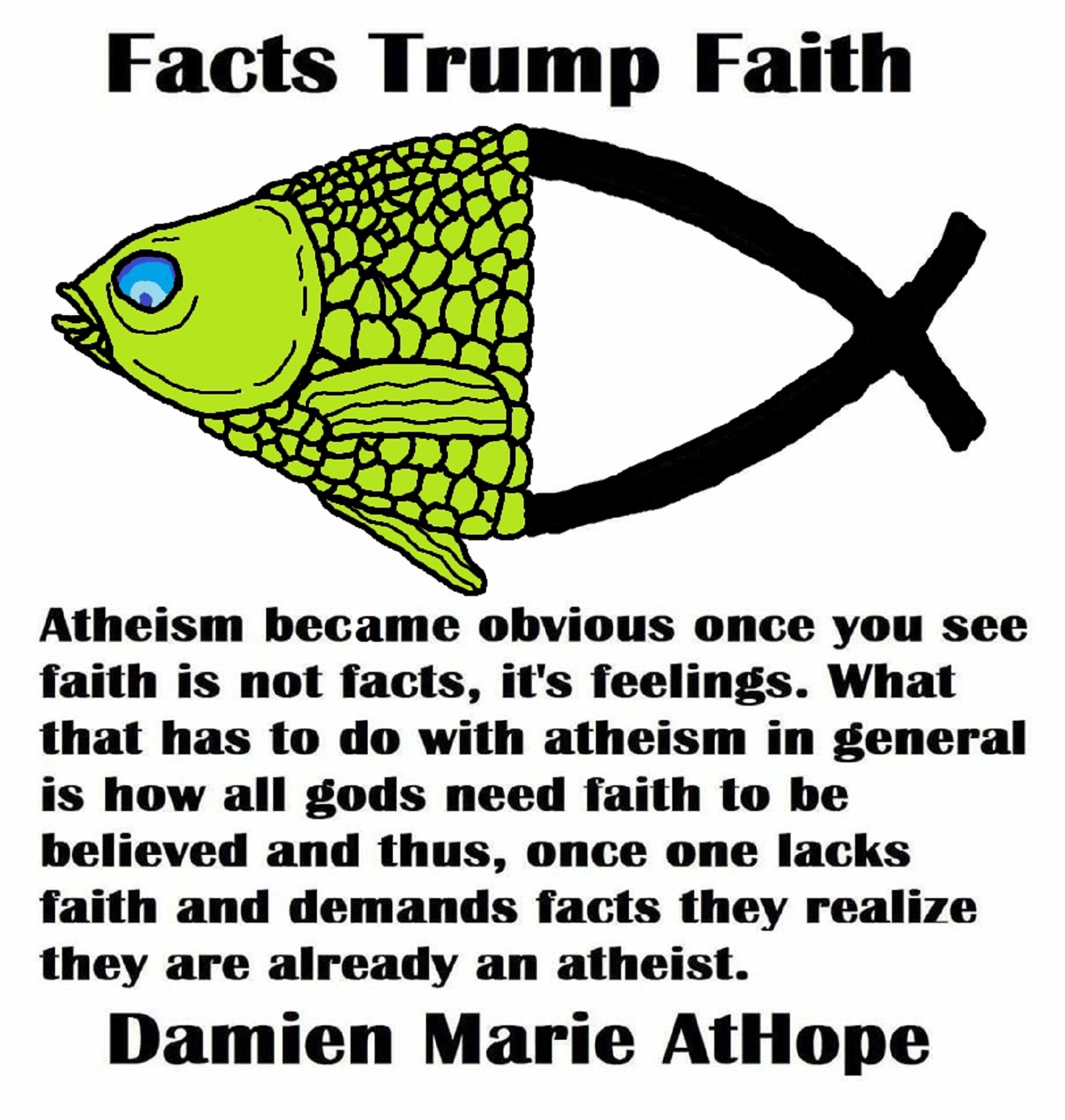


“Theists, there has to be a god, as something can not come from nothing.”
Well, thus something (unknown) happened and then there was something. This does not tell us what the something that may have been involved with something coming from nothing. A supposed first cause, thus something (unknown) happened and then there was something is not an open invitation to claim it as known, neither is it justified to call or label such an unknown as anything, especially an unsubstantiated magical thinking belief born of mythology and religious storytelling.

While hallucinogens are associated with shamanism, it is alcohol that is associated with paganism.
The Atheist-Humanist-Leftist Revolutionaries Shows in the prehistory series:
Show two: Pre-animism 300,000 years old and animism 100,000 years old: related to “Anarchism and Socialism”
Show tree: Totemism 50,000 years old: related to “Anarchism and Socialism”
Show four: Shamanism 30,000 years old: related to “Anarchism and Socialism”
Show five: Paganism 12,000 years old: related to “Anarchism and Socialism”
Show six: Emergence of hierarchy, sexism, slavery, and the new male god dominance: Paganism 7,000-5,000 years old: related to “Anarchism and Socialism” (Capitalism) (World War 0) Elite and their slaves!
Prehistory: related to “Anarchism and Socialism” the division of labor, power, rights, and recourses: VIDEO
Pre-animism 300,000 years old and animism 100,000 years old: related to “Anarchism and Socialism”: VIDEO
Totemism 50,000 years old: related to “Anarchism and Socialism”: VIDEO
Shamanism 30,000 years old: related to “Anarchism and Socialism”: VIDEO
Paganism 12,000 years old: related to “Anarchism and Socialism” (Pre-Capitalism): VIDEO
Paganism 7,000-5,000 years old: related to “Anarchism and Socialism” (Capitalism) (World War 0) Elite and their slaves: VIEDO
Paganism 5,000 years old: progressed organized religion and the state: related to “Anarchism and Socialism” (Kings and the Rise of the State): VIEDO
Paganism 4,000 years old: related to “Anarchism and Socialism” (First Moralistic gods, then the Origin time of Monotheism): VIEDO
I do not hate simply because I challenge and expose myths or lies any more than others being thought of as loving simply because of the protection and hiding from challenge their favored myths or lies.
The truth is best championed in the sunlight of challenge.
An archaeologist once said to me “Damien religion and culture are very different”
My response, So are you saying that was always that way, such as would you say Native Americans’ cultures are separate from their religions? And do you think it always was the way you believe?
I had said that religion was a cultural product. That is still how I see it and there are other archaeologists that think close to me as well. Gods too are the myths of cultures that did not understand science or the world around them, seeing magic/supernatural everywhere.
I personally think there is a goddess and not enough evidence to support a male god at Çatalhöyük but if there was both a male and female god and goddess then I know the kind of gods they were like Proto-Indo-European mythology.
This series idea was addressed in, Anarchist Teaching as Free Public Education or Free Education in the Public: VIDEO
Our 12 video series: Organized Oppression: Mesopotamian State Force and the Politics of power (9,000-4,000 years ago), is adapted from: The Complete and Concise History of the Sumerians and Early Bronze Age Mesopotamia (7000-2000 BC): https://www.youtube.com/watch?v=szFjxmY7jQA by “History with Cy“
Show #1: Mesopotamian State Force and the Politics of Power (Samarra, Halaf, Ubaid)
Show #2: Mesopotamian State Force and the Politics of Power
Show #3: Mesopotamian State Force and the Politics of Power (Uruk and the First Cities)
Show #4: Mesopotamian State Force and the Politics of Power (First Kings)
Show #5: Mesopotamian State Force and the Politics of Power (Early Dynastic Period)
Show #6: Mesopotamian State Force and the Politics of Power
Show #7: Mesopotamian State Force and the Politics of Power (Sargon and Akkadian Rule)
Show #9: Mesopotamian State Force and the Politics of Power (Gudea of Lagash and Utu-hegal)
Show #12: Mesopotamian State Force and the Politics of Power (Aftermath and Legacy of Sumer)

The “Atheist-Humanist-Leftist Revolutionaries”
Cory Johnston ☭ Ⓐ Atheist Leftist @Skepticallefty & I (Damien Marie AtHope) @AthopeMarie (my YouTube & related blog) are working jointly in atheist, antitheist, antireligionist, antifascist, anarchist, socialist, and humanist endeavors in our videos together, generally, every other Saturday.
Why Does Power Bring Responsibility?
Think, how often is it the powerless that start wars, oppress others, or commit genocide? So, I guess the question is to us all, to ask, how can power not carry responsibility in a humanity concept? I know I see the deep ethical responsibility that if there is power their must be a humanistic responsibility of ethical and empathic stewardship of that power. Will I be brave enough to be kind? Will I possess enough courage to be compassionate? Will my valor reach its height of empathy? I as everyone, earns our justified respect by our actions, that are good, ethical, just, protecting, and kind. Do I have enough self-respect to put my love for humanity’s flushing, over being brought down by some of its bad actors? May we all be the ones doing good actions in the world, to help human flourishing.
I create the world I want to live in, striving for flourishing. Which is not a place but a positive potential involvement and promotion; a life of humanist goal precision. To master oneself, also means mastering positive prosocial behaviors needed for human flourishing. I may have lost a god myth as an atheist, but I am happy to tell you, my friend, it is exactly because of that, leaving the mental terrorizer, god belief, that I truly regained my connected ethical as well as kind humanity.
Cory and I will talk about prehistory and theism, addressing the relevance to atheism, anarchism, and socialism.
At the same time as the rise of the male god, 7,000 years ago, there was also the very time there was the rise of violence, war, and clans to kingdoms, then empires, then states. It is all connected back to 7,000 years ago, and it moved across the world.
Cory Johnston: https://damienmarieathope.com/2021/04/cory-johnston-mind-of-a-skeptical-leftist/?v=32aec8db952d
The Mind of a Skeptical Leftist (YouTube)
Cory Johnston: Mind of a Skeptical Leftist @Skepticallefty
The Mind of a Skeptical Leftist By Cory Johnston: “Promoting critical thinking, social justice, and left-wing politics by covering current events and talking to a variety of people. Cory Johnston has been thoughtfully talking to people and attempting to promote critical thinking, social justice, and left-wing politics.” http://anchor.fm/skepticalleft
Cory needs our support. We rise by helping each other.
Cory Johnston ☭ Ⓐ @Skepticallefty Evidence-based atheist leftist (he/him) Producer, host, and co-host of 4 podcasts @skeptarchy @skpoliticspod and @AthopeMarie
Damien Marie AtHope (“At Hope”) Axiological Atheist, Anti-theist, Anti-religionist, Secular Humanist. Rationalist, Writer, Artist, Poet, Philosopher, Advocate, Activist, Psychology, and Armchair Archaeology/Anthropology/Historian.
Damien is interested in: Freedom, Liberty, Justice, Equality, Ethics, Humanism, Science, Atheism, Antiteism, Antireligionism, Ignosticism, Left-Libertarianism, Anarchism, Socialism, Mutualism, Axiology, Metaphysics, LGBTQI, Philosophy, Advocacy, Activism, Mental Health, Psychology, Archaeology, Social Work, Sexual Rights, Marriage Rights, Woman’s Rights, Gender Rights, Child Rights, Secular Rights, Race Equality, Ageism/Disability Equality, Etc. And a far-leftist, “Anarcho-Humanist.”
I am not a good fit in the atheist movement that is mostly pro-capitalist, I am anti-capitalist. Mostly pro-skeptic, I am a rationalist not valuing skepticism. Mostly pro-agnostic, I am anti-agnostic. Mostly limited to anti-Abrahamic religions, I am an anti-religionist.
To me, the “male god” seems to have either emerged or become prominent around 7,000 years ago, whereas the now favored monotheism “male god” is more like 4,000 years ago or so. To me, the “female goddess” seems to have either emerged or become prominent around 11,000-10,000 years ago or so, losing the majority of its once prominence around 2,000 years ago due largely to the now favored monotheism “male god” that grow in prominence after 4,000 years ago or so.
My Thought on the Evolution of Gods?
Animal protector deities from old totems/spirit animal beliefs come first to me, 13,000/12,000 years ago, then women as deities 11,000/10,000 years ago, then male gods around 7,000/8,000 years ago. Moralistic gods around 5,000/4,000 years ago, and monotheistic gods around 4,000/3,000 years ago.
To me, animal gods were likely first related to totemism animals around 13,000 to 12,000 years ago or older. Female as goddesses was next to me, 11,000 to 10,000 years ago or so with the emergence of agriculture. Then male gods come about 8,000 to 7,000 years ago with clan wars. Many monotheism-themed religions started in henotheism, emerging out of polytheism/paganism.

Damien Marie AtHope (Said as “At” “Hope”)/(Autodidact Polymath but not good at math):
Axiological Atheist, Anti-theist, Anti-religionist, Secular Humanist, Rationalist, Writer, Artist, Jeweler, Poet, “autodidact” Philosopher, schooled in Psychology, and “autodidact” Armchair Archaeology/Anthropology/Pre-Historian (Knowledgeable in the range of: 1 million to 5,000/4,000 years ago). I am an anarchist socialist politically. Reasons for or Types of Atheism
My Website, My Blog, & Short-writing or Quotes, My YouTube, Twitter: @AthopeMarie, and My Email: damien.marie.athope@gmail.com




